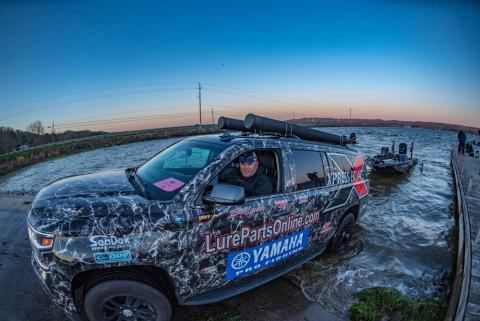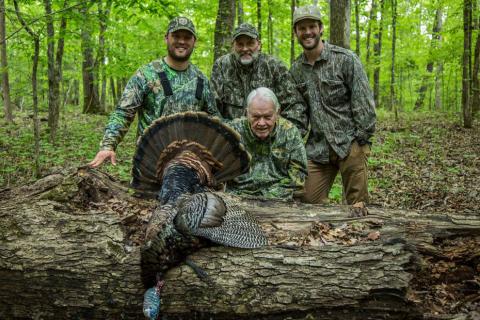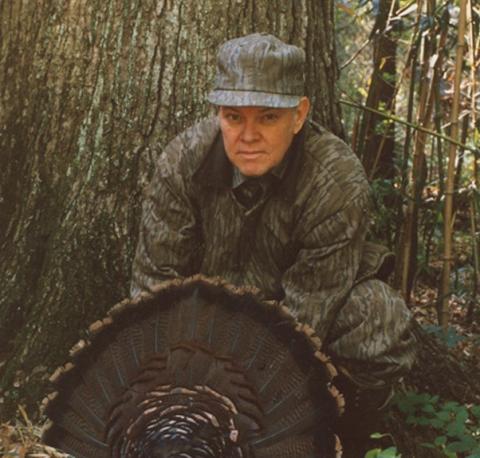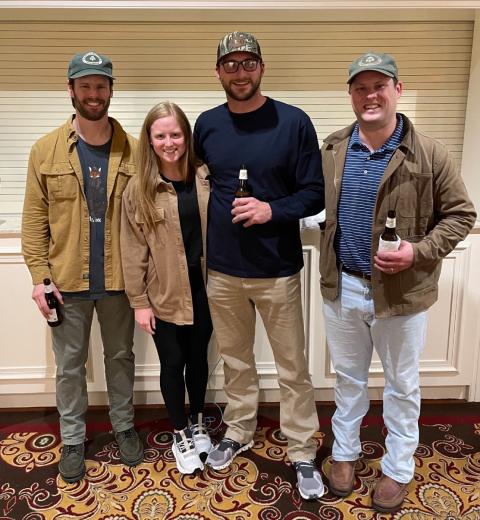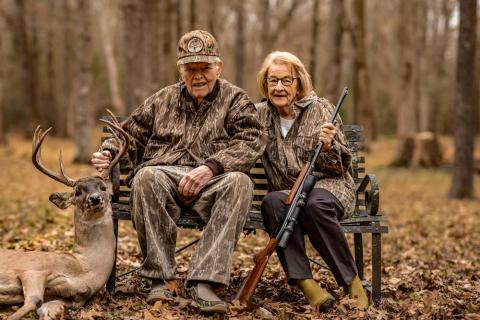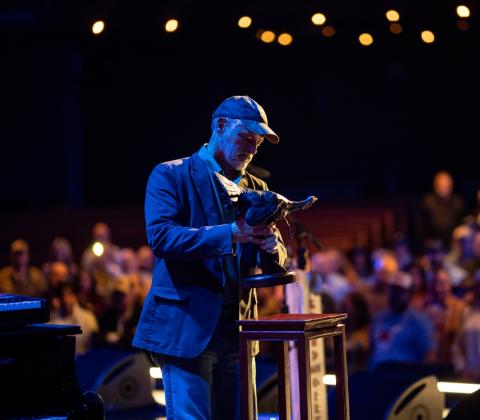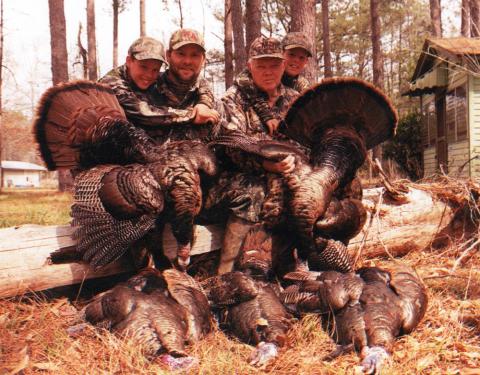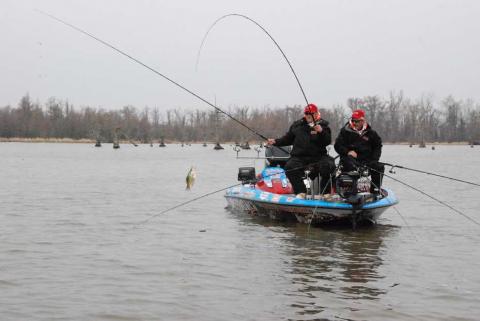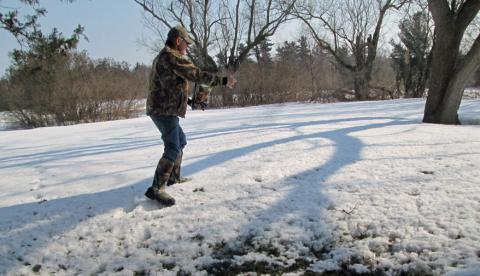provided by John E. Phillips
I first met Mossy Oak Pro Ashlee Lundvall of Cody, Wyoming, 5 years ago. “I’d like to become an outdoor writer and work in the outdoors,” Lundvall told me then. Her dream certainly has come true. In that short time, she’s won the Pathfinder Award presented by Safari Club International (SCI) and a hunting trip for her family and herself to Africa. Lundvall also has been appointed to the President’s Council for Sports, Fitness and Nutrition along with well-known outstanding athletes, movie stars and coaches. She’s been asked to become a brand advisor for a silencer/suppressor company and serves on two National Rifle Association (NRA) committees – the Outreach Committee and the Disabled Shooting Sports Committee. She writes for “Women in the Outdoors,” “Able Outdoors” and several other publications. She’s now training for archery competitions to qualify for the Paralympic Games either in 2022 or 2024.
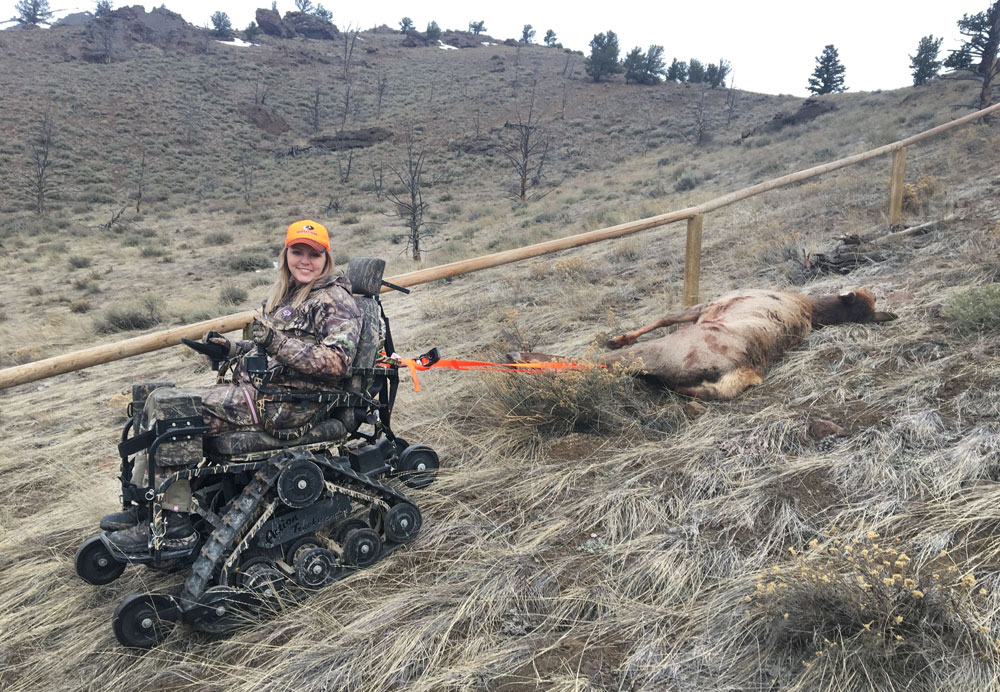
Before I got totally involved in the outdoors, the outdoors appeared to be a very scary place to me for people with disabilities. Many people made the assumption that if you had some type of disability that being in the outdoors and participating in outdoor sports were off limits for you. The only thing these folks thought you could do was to stay indoors. Back then, most people with physical disabilities didn’t or couldn’t go outdoors, even if they had in the past. Today, thankfully, there’s a tremendous amount of adaptive equipment for all kinds of outdoor sports, including hunting, fishing, kayaking, hiking, shooting, archery and others. We’re seeing more and more people who’ve been active in the outdoors in the past - perhaps before their injuries - now able to return to wild things. Too, people who’ve never participated in the outdoors but now are disabled are discovering a whole new world outside their four walls.
My first bull elk hunt was in 2013. I had to be literally drug up a mountain by friends to be able to harvest my first bull. At that time, I didn’t know anything about adaptive outdoor equipment. At first, I traveled miles in my manual wheelchair. The hunters who went with me on those hunts had to use a tow rope and a harness to drag me up and down mountains. I crawled a lot and rolled down hills. My friends buddy-pulled me through cacti and other types of physical barriers, because I wanted to return to my life as a hunter, although I was paralyzed from the waist down. Through those experiences, I learned that you could hunt without adaptive equipment, but your body would pay the price afterwards, and so would your friends.
With the Action Trackchair I can go anywhere I want to over any type of terrain I may encounter. I can use the Trackchair to go out and get the mail, walk with my daughter, travel all over our 20-acre property standing up or sitting down, fly fish, shoot trap and do any type of hunting in which I want to participate. I’ve drug animals out of the mountains with my Trackchair after I’ve taken them. Now I feel as though I’m fully independent, and I’m able to help even able-bodied people in the outdoors.
In her book, “A Redefined Life,” Ashley tells how she was injured at age 16 and not only recovered but today lives a life she’d only dreamed of having. Ashlee’s book is also available from Amazon.
















